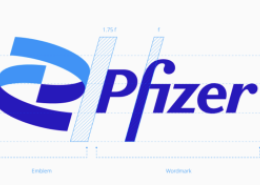Bristol-Myers Squibb and Pfizer Announce Publication of ARISTOTLE Subanalysis in Circulation
Subgroup analysis demonstrates that the treatment effects of Eliquis® (apixaban) vs. warfarin, across a broad range of warfarin control, are consistent with primary results of ARISTOTLE ARISTOTLE studied Eliquis vs. warfarin for the reduction of the risk of stroke and systemic embolism in patients with nonvalvular atrial fibrillation
Bristol-Myers Squibb Company (NYSE: BMY) and Pfizer Inc. (NYSE: PFE) today announced that results from a prespecified subanalysis of the ARISTOTLE trial were published in Circulation, the peer-reviewed journal of the American Heart Association. Results from this subanalysis showed that the reductions in stroke or systemic embolism, number of major bleeding events and mortality demonstrated with Eliquis® (apixaban) compared to warfarin in the ARISTOTLE trial were consistent across subgroups defined based on levels of International Normalized Ratio (INR) control in patients with nonvalvular atrial fibrillation.
“Concerning the quality of warfarin treatment, there is a large variation in time in therapeutic range among different countries and centers, which affects outcomes. This subanalysis was conducted to determine whether the treatment effects of apixaban were similar in centers and patients with high quality warfarin care,” said study lead author Dr. Lars Wallentin of Uppsala University in Uppsala, Sweden. “These additional analyses supported that the primary results of ARISTOTLE were consistent across a broad range of quality of warfarin management.”
Variations in time in therapeutic range (TTR) can affect outcomes for atrial fibrillation patients being treated with Vitamin K antagonists such as warfarin for stroke prevention, leading to an increased risk of stroke when INR levels are below, or bleeding when INR levels are above, the therapeutic range. For patients in the ARISTOTLE trial, the quality of warfarin management was defined by TTR, with a target INR of 2.0 – 3.0. In the ARISTOTLE trial, patients in the warfarin group had an INR in the therapeutic range (2.0 to 3.0) for a median of 66.0% of the time. For context, the median time for INR in the therapeutic range varies across the globe. In clinical practice settings in the United States, it is approximately 57-59%.
The ARISTOTLE trial randomized 18,201 patients from 1,034 clinical centers in 39 countries. In this subanalysis, for each patient, a center average TTR (cTTR) was estimated using a linear mixed model based on the real TTRs in warfarin treated patients with a fixed effect for country and random effect for center. Study centers were placed into one of four similarly sized quartile groups based on cTTR (<60.5%; 60.6%-66.3%; 66.4%-71.1%; and >71.2%). The rates of stroke or systemic embolism, major bleeding and mortality were consistently lower withEliquisthan warfarin across the cTTR quartiles. Similar results were seen when an individual TTR (iTTR), predicted using a model including patient characteristics, was examined in a post-hoc analysis.
While demonstrating consistency across a broad range of warfarin control, results of this subanalysis suggest a trend toward reduction of the treatment effects at centers and in patients with predicted excellent INR control. In these centers, interaction tests are less reliable because of low numbers of events, and thereby lack statistical power.
Based on the results of the subanalysis, the benefits ofEliquiscompared with warfarin for stroke or systemic embolism, bleeding, and mortality appear similar across the range of centers’ and patients’ quality of INR control.
About ARISTOTLE Trial Design
The ARISTOTLE study was designed to demonstrate the efficacy and safety ofEliquisversus warfarin for the prevention of stroke or systemic embolism in patients with nonvalvular atrial fibrillation. In ARISTOTLE, 18,201 patients were randomized (9,120 patients toEliquisand 9,081 to warfarin). ARISTOTLE was an active-controlled, randomized, double-blind, multi-national trial in patients with nonvalvular atrial fibrillation or atrial flutter, and at least one additional risk factor for stroke. Patients were randomized to treatment withEliquis5 mg orally twice daily (or 2.5 mg twice daily in selected patients, representing 4.7 percent of all patients) or warfarin (target INR range 2.0-3.0), and followed for a median of 1.8 years.
About Atrial Fibrillation
Atrial fibrillation is the most common cardiac arrhythmia (irregular heart beat). It is estimated that more than 5.8 million Americans and 6 million individuals in Europe have atrial fibrillation. Nonvalvular atrial fibrillation, or NVAF, is the most common type of atrial fibrillation. The lifetime risk of developing atrial fibrillation is estimated to be approximately 25 percent for individuals 40 years of age or older. One of the most serious medical concerns for individuals with atrial fibrillation is the increased risk of stroke, which is five times higher in people with atrial fibrillation than those without atrial fibrillation. In fact, 15 percent of all strokes are attributable to atrial fibrillation in the U.S. Additionally, strokes due to atrial fibrillation are more burdensome than strokes due to other causes. Atrial fibrillation-related strokes are more severe than other strokes, with an associated 30-day mortality of 24 percent and a 50 percent likelihood of death within one year in patients who are not treated with an antithrombotic.
About Eliquis®
Eliquis® (apixaban) is an oral direct Factor Xa inhibitor. By inhibiting Factor Xa, a key blood clotting protein,Eliquis prevents thrombin generation and blood clot formation.Eliquis is approved to reduce the risk of stroke and systemic embolism in patients with nonvalvular atrial fibrillation in the United States, European Union, Canada, Japan, Korea, Mexico, Columbia, Russia, Israel and Australia.Eliquisis approved for prevention of venous thromboembolic events (VTE) in adult patients who have undergone elective hip or knee replacement surgery in a total of 17 regions: Argentina, Australia, Brazil, Canada, Colombia, European Union (which includes 27 member states plus Iceland and Norway), Hong Kong, India, Indonesia, Israel, Peru, Russia, South Korea, Switzerland, Thailand, Turkey and the United Arab Emirates.
IMPORTANT SAFETY INFORMATION FOR ELIQUIS
BOXED WARNING: DISCONTINUING ELIQUIS IN PATIENTS WITHOUT ADEQUATE
CONTINUOUS ANTICOAGULATION INCREASES RISK OF STROKE.
Discontinuing ELIQUIS places patients at an increased risk of thrombotic events. An increased
rate of stroke was observed following discontinuation of ELIQUIS in clinical trials in patients with
nonvalvular atrial fibrillation. If anticoagulation with ELIQUIS must be discontinued for a reason
other than pathological bleeding, coverage with another anticoagulant should be strongly
considered.
CONTRAINDICATIONS
- Active pathological bleeding
- Severe hypersensitivity reaction to ELIQUIS (apixaban) (i.e., anaphylactic reactions)
WARNINGS AND PRECAUTIONS
Increased Risk of Stroke with Discontinuation of ELIQUIS:Discontinuing ELIQUIS in the absence
of adequate alternative anticoagulation increases the risk of thrombotic events. An increased rate of stroke
was observed during the transition from ELIQUIS to warfarin in clinical trials in patients with
nonvalvular atrial fibrillation. If ELIQUIS must be discontinued for a reason other than pathological
bleeding, consider coverage with another anticoagulant.
Bleeding Risk:ELIQUIS increases the risk of bleeding and can cause serious, potentially fatal bleeding.
Concomitant use of drugs affecting hemostasis increases the risk of bleeding including aspirin and other
anti-platelet agents, other anticoagulants, heparin, thrombolytic agents, SSRIs, SNRIs, and NSAIDs.
Patients should be made aware of signs or symptoms of blood loss and instructed to immediately report to
an emergency room. Discontinue ELIQUIS in patients with active pathological hemorrhage. There is no established way to reverse the anticoagulant effect of apixaban, which can be expected to persist for about 24 hours after the last dose (i.e., about two half-lives). A specific antidote for ELIQUIS is not available. Because of high plasma protein binding, apixaban is not expected to be dialyzable. Protamine sulfate and vitamin K would not be expected to affect the anticoagulant activity of apixaban. There is no experience with antifibrinolytic agents (tranexamic acid, aminocaproic acid) in individuals receiving apixaban. There is neither scientific rationale for reversal nor experience with systemic hemostatics (desmopressin and aprotinin) in individuals receiving apixaban. Use of procoagulant reversal agents such as prothrombin complex concentrate, activated prothrombin complex concentrate, or recombinant factor VIIa may be considered but has not been evaluated in clinical studies. Activated charcoal reduces absorption of apixaban thereby lowering apixaban plasma concentrations.
Prosthetic Heart Valves:The safety and efficacy of ELIQUIS has not been studied in patients with
prosthetic heart valves and is not recommended in these patients.
ADVERSE REACTIONS
The most common and most serious adverse reactions reported with ELIQUIS (apixaban) were related to
bleeding.
DISCONTINUATIONS FOR SURGERY AND OTHER INTERVENTIONS
ELIQUIS should be discontinued at least 48 hours prior to elective surgery or invasive procedures with a
moderate or high risk of unacceptable or clinically significant bleeding. ELIQUIS should be discontinued at least
24 hours prior to elective surgery or invasive procedures with a low risk of bleeding or where the bleeding would
be noncritical in location and easily controlled.
DRUG INTERACTIONS
Strong Dual Inhibitors of CYP3A4 and P-gp:Inhibitors of CYP3A4 and P-gp increase exposure to
apixaban and increase the risk of bleeding. Decrease the dose of ELIQUIS to 2.5 mg twice daily when
coadministered with drugs that are strong dual inhibitors of CYP3A4 and P-gp, (e.g., ketoconazole,
itraconazole, ritonavir, or clarithromycin). In patients already taking ELIQUIS at a dose of 2.5 mg twice
daily, avoid coadministration with strong dual inhibitors of CYP3A4 and P-gp.
Strong Dual Inducers of CYP3A4 and P-gp:Inducers of CYP3A4 and P-gp decrease exposure to
apixaban and increase the risk of stroke. Avoid concomitant use of ELIQUIS with strong dual inducers of
CYP3A4 and P-gp (e.g., rifampin, carbamazepine, phenytoin, St. John’s wort) because such drugs will
decrease exposure to apixaban.
Anticoagulants and Antiplatelet Agents:Coadministration of antiplatelet agents, fibrinolytics, heparin,
aspirin, and chronic NSAID use increases the risk of bleeding. APPRAISE-2, a placebo-controlled
clinical trial of apixaban in high-risk post-acute coronary syndrome patients treated with aspirin or
the combination of aspirin and clopidogrel, was terminated early due to a higher rate of bleeding with
apixaban compared to placebo.
PREGNANCY CATEGORY B
There are no adequate and well-controlled studies of ELIQUIS in pregnant women. Treatment is likely to
increase the risk of hemorrhage during pregnancy and delivery. ELIQUIS should be used during pregnancy only
if the potential benefit outweighs the potential risk to the mother and fetus.
Please see full Prescribing Information including BOXED WARNING and Medication Guide available at www.bms.com.
About the Bristol-Myers Squibb/Pfizer Collaboration
In 2007, Pfizer and Bristol-Myers Squibb entered into a worldwide collaboration to develop and commercializeEliquis, an investigational oral anticoagulant discovered by Bristol-Myers Squibb. This global alliance combines Bristol-Myers Squibb's long-standing strengths in cardiovascular drug development and commercialization with Pfizer’s global scale and expertise in this field.
About Bristol-Myers Squibb
Bristol-Myers Squibb is a global biopharmaceutical company whose mission is to discover, develop and deliver innovative medicines that help patients prevail over serious diseases. For more information, please visit http://www.bms.com or follow us on Twitter at http://twitter.com/bmsnews.
Pfizer Inc.: Working together for a healthier world™
At Pfizer, we apply science and our global resources to bring therapies to people that extend and significantly improve their lives. We strive to set the standard for quality, safety and value in the discovery, development and manufacture of health care products. Our global portfolio includes medicines and vaccines as well as many of the world's best-known consumer health care products. Every day, Pfizer colleagues work across developed and emerging markets to advance wellness, prevention, treatments and cures that challenge the most feared diseases of our time. Consistent with our responsibility as one of the world's premier innovative biopharmaceutical companies, we collaborate with health care providers, governments and local communities to support and expand access to reliable, affordable health care around the world. For more than 150 years, Pfizer has worked to make a difference for all who rely on us. To learn more, please visit us at www.pfizer.com.
Bristol-Myers Squibb Forward-Looking Statement
This press release contains "forward-looking statements" as that term is defined in the Private Securities Litigation Reform Act of 1995 regarding product development. Such forward-looking statements are based on current expectations and involve inherent risks and uncertainties, including factors that could delay, divert or change any of them, and could cause actual outcomes and results to differ materially from current expectations. No forward-looking statement can be guaranteed. Among other risks, there can be no guarantee that Eliquis will become a commercially successful product. Forward-looking statements in this press release should be evaluated together with the many uncertainties that affect Bristol-Myers Squibb's business, particularly those identified in the cautionary factors discussion in Bristol-Myers Squibb's Annual Report on Form 10-K for the year ended December 31, 2012, in our Quarterly Reports on Form 10-Q and our Current Reports on Form 8-K. Bristol-Myers Squibb undertakes no obligation to publicly update any forward-looking statement, whether as a result of new information, future events or otherwise.
PFIZER DISCLOSURE NOTICE:
The information contained in this release is as of May 6, 2013. Pfizer assumes no obligation to update forward-looking statements contained in this release as the result of new information or future events or developments.
This release contains forward-looking information about ELIQUIS (apixaban) that involves substantial risks and uncertainties. Such risks and uncertainties include, among other things, (i) the uncertainties regarding the commercial success of ELIQUIS for the reduction of the risk of stroke and systemic embolism in patients with nonvalvular atrial fibrillation; (ii) decisions by regulatory authorities in jurisdictions in which applications are pending or may be filed for ELIQUIS for the prevention of stroke and systemic embolism in patients with nonvalvular atrial fibrillation regarding whether and when to approve such applications, as well as their decisions regarding labeling and other matters that could affect the availability or commercial potential of that indication in such jurisdictions; and (iii) competitive developments.
A further description of risks and uncertainties can be found in Pfizer’s Annual Report on Form 10-K for the fiscal year ended December 31, 2012 and in its reports on Form 10-Q and Form 8-K.








